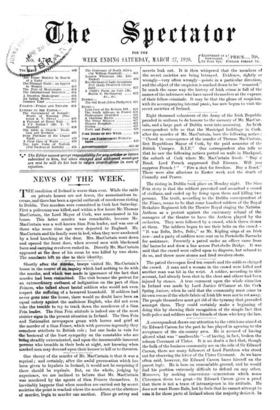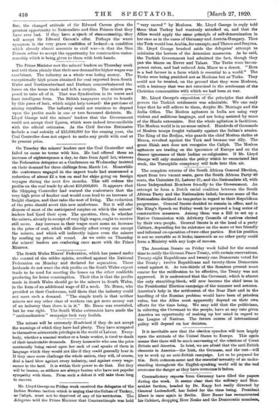A correspondent draws our attention to the criticisms aimed at
Sir Edward Carson for the part he has played in agreeing to the acceptance of the six-county area. He is accused of having altered what was "unalterable "—of having, in fact, broken the solemn Covenant of Ulster. It is no doubt a fact that, though the bulk of the business community are on the side of Sir Edward Carson, there aro many followers of Lord Farnham who stood out for observing the letter of the Ulster Covenant. As we have often said, however, Sir Edward Carson bases himself on the purest logic. Ho is here on unassailable ground, and he would find his position extremely difficult to defend on any other. Moreover, by making concessions—concessions which some Ulstermen deem too great—Sir Edward Carson gives a proof that there is not a trace of intransigence in his attitude. He does not want Home Rule, but ho feels that he cannot attempt to veto it for those parts of Ireland where the majority desire it. In
fine, the changed attitude of Sir Edward Carson gives the greatest opportunity to Nationalists and Sinn Feiners that they have ever had. If they have a•-• spark--of statesm'anship,, they will accept Sir Edward Carson's offer. Perhaps the worst symptom in the very grave condition of Ireland—a condition which already almost amounts to civil war—is that the Sinn Feiner& refuse to accept the opportunity for constructive states- manship which is being given to them with both hands.



































 Previous page
Previous page